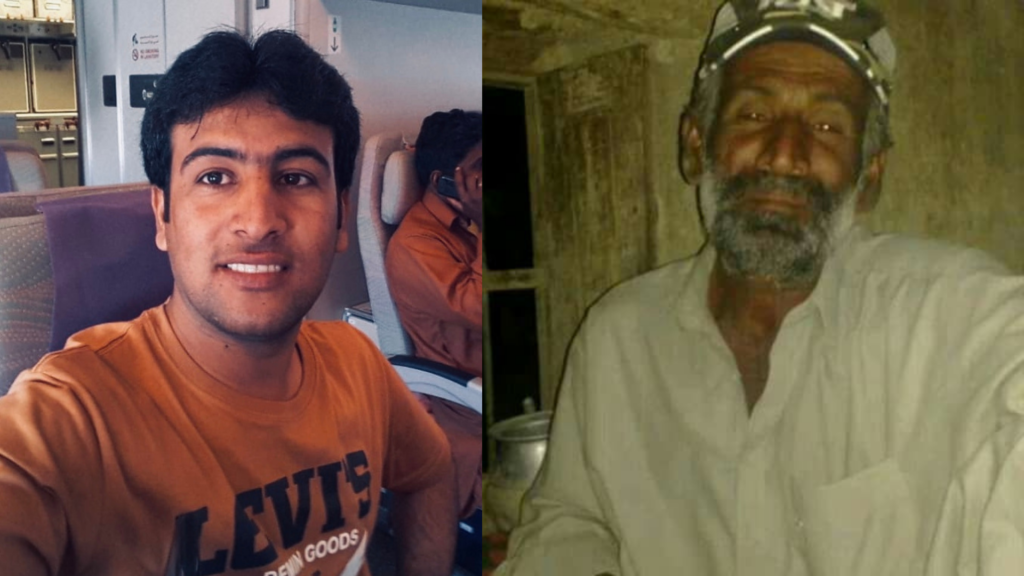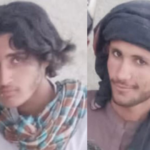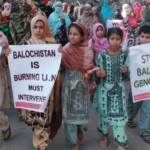Since efforts on the ground are not bearing much fruit in providing justice to the families of victims of enforced disappearances in Pakistan, social media has become the only platform where they campaign regularly for the safe return of their loved ones. Asma Baloch is one such family member. Recently, her brother Najeeb was whisked away. He was traveling on a bus headed towards Karachi when Frontier Corps personnel stopped it at Rakhshan check-post and after checking national identity cards, detained him and transferred him to an unknown location. Najeeb is not the only family member who has been forcibly disappeared by the forces. The family has remained a victim of state brutalities.
In 2013, just before the general elections, the IG of the Frontier Corps, a paramilitary force of the Pakistani army, announced their military operations across Balochistan are an effort to “make sure elections go free and fair”.
In one such operation, on early morning of April 29, 2013, two weeks before the general elections, the forces sieged Teertej village of district Awaran and carried out a massive operation. On that day, the security forces detained and forcefully disappeared 18 people. One among them was Jameel Rahmat.
Jameel Rahmat was once a laborer in the coastal town of Passini. After his youngest daughter Asma’s birth he decided to return to his village and instead started farming on his ancestral land. Asma was with her father on the day when he was abducted by the forces.
“It was early dawn. I was standing with my father when we heard loud noises. My mother rushed out in panic and shouted to us that the forces have invaded the village. They were sabotaging the houses and abducting people, mainly the men. She asked him to run away before the forces came to their house. She was afraid that the forces would take him with them. My father refused to leave, saying that he is an old man and why would someone detainan old man like him who could hardly work in his fields,” Asma recalls. “I held my father’s finger firmly out of fear as I saw two soldiers approaching. My father asked me to cover my head as they reached near us. They started slapping and kicking my father. They dragged him in front of us and put him in a vehicle. That was the last time I saw him. I still remember everything as vividly as if it happened yesterday.”
In September 2013, a few months later, a major earthquake measuring 7.7 on the Richter scale hit the region. At least 825 people were killed and hundreds more were injured. Most homes in the region which are constructed with mudbricks collapsed due to the earthquake and the aftershocks.
Officials from the Balochistan government estimated that at least 21,000 houses had been completely destroyed. Jameel Rahmat’s home was one among those. The family managed to rebuild their home by the end of 2014 but in January 2015, the army raided their newly built house for one last time. They burnt down his home and settlements into ashes. Jameel’s family was hence forced to migrated from the area.
However, the forces didn’t stop there. Master Khuda Bakhsh, Jameel’s cousin, a teacher in Government Middle School Razai Bazar Gishkor and President of Teachers Association of district Awaran, was invited to Gishkor Military Camp for an event by a Pakistan Army Colonel called Kashif on February 14, 2015.
He attended the event and never returned. On March 3, 2015, after 17 days of disappearance, his mutilated dead body was handed over to a hospital in Khuzdar. His body bore several signs of torture and marks of beating.
Similarly, Doctor Sanaullah, a friend of Master Khuda Bakhsh’s, was invited to the military camp after a few days of Master’s disappearance in February 2013. Three days later, when Master was still missing, army officials brought the bullet-riddled body of Doctor Sanaullah to a local hospital. They claimed that Baloch insurgents had attacked their camp and in cross fire, Doctor Sanaullah received three bullets from insurgents’ firing and died.
However, the medical officer on duty concluded that all three bullets were shot from a very close range.
Sabzal Qoumi, another cousin of Jameel Rahmat, shared the same fate. Sabzal’s home in Harooni Dann area of district Awaran was burned down by the forces in a military operation. He along with his family migrated to Sehr Kolwa in Gishkor. On September 15, 2017, the forces carried out a ground and aerial operation during which Sabzal was taken away from Madag e Kalat area of Dandar. A week later his body was found hanging from a tree.
“Nako (Uncle) Sabzal was just a laborer. You will not find a single human being who he ever hurt. I don’t understand what they wanted to prove by hanging his dead body on a tree?” says Asma.
“Balochistan is a free land. The forces are free to do what they want. It is free in a sense from all national and international laws. The life expectancy rate here is very low not only because of a lack of medical facilities but due to brutal policies of the state. They can abduct and kill anyone anytime. My father’s only crime is that he belongs to a family whose youths had demanded their rights. The right to live,” she adds.
For eight years Asma has been awaiting justice for her father and now she will have to wait for her brother too.


